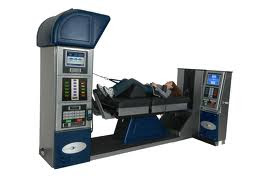So many of us are affected by difficulty sleeping, inability to fall asleep or waking frequently throughout the night. Aside from sleep disorders, such as sleep apnea, a major cause for problems with sleeping comes from the mattress and
pillow you are using.
You should get a new mattress every 10-15 years. I’ve had friends who’ve kept their mattress well over 20 years, and complain often of back and neck pain. By simply switching to a mattress that is not worn out they could easily do wonders for their ability to sleep and to wake up without pain or tightness.
So how do you know which is the right mattress for you? By trying it out! Picking a mattress that you will use for the next decade is a big investment, and not a decision to be made quickly. Pick a mattress that has a trial period (most of the good ones do). Trial periods can be anywhere from three months to a few years. This way you can sleep on the mattress and judge after time whether it is helping your sleep or hindering it. As for hard or soft mattresses, it depends on the person. Just make sure you have adequate support for your neck, shoulders, and back. Also, keep in mind that the majority tend to sleep on something too soft.
Once you have a new mattress, it’s time to take a look at your sleeping position. The best position for your spine is to sleep on your back with a
pillow under your bent knees, to take pressure off your lower back. Another good position is on your side with a
pillow between your legs, keeping them hip-width apart. Unfortunately, sleeping on your stomach is the worst position, and a favorite of a lot of people. It strains your neck as you have to turn your neck to breathe. It’s a tough habit to kick, but it’s worth it to wake up with no back, shoulder or neck pain. Try falling asleep on your back by putting pillows on both sides of your body to help prevent rolling over. Also our “V” pillow helps hold you on your back by holding your neck in place.
Your pillow is the final element in a good night’s sleep. If you prefer sleeping on your back, choose a pillow that won’t thrust your neck forward (avoid multiple pillows). If you are a side-sleeper you’ll need a thicker pillow for more neck support. The best thing to do is to take your current pillow in to your next chiropractic visit. Show your
chiropractor, and if he or she doesn’t seem to think the pillow is providing enough support, ask them for suggestions.
The Glastonbury Chiropractor is located in central Connecticut- CT Spine and Disc Center specializes in patients who suffer from sciatica, disc degeneration, bulging disc or herniated disc in the lumbar spine. Call our chiropractic office at 860-633-8756 to schedule an appointment and to see if you are a candidate for non surgical spinal decompressionAdditional Reading Resources:




